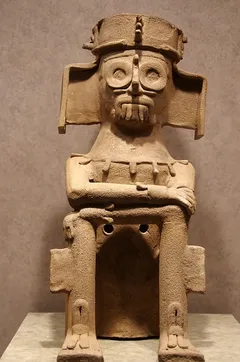Once upon a time, in the heart of Kabul, Afghanistan, there stood a magnificent building known as the Afghan National Museum. This grand establishment housed a treasure trove of historical artifacts, each whispering stories of the nation’s rich cultural heritage. Over the years, this museum became a symbol of resilience, preserving the essence of Afghan identity amidst the chaos of war and conflict.
Deep within the museum’s vast halls, a dedicated team of anthropologists and curators toiled tirelessly to uncover the enigmatic tales behind each artifact. They believed that through these objects, they could unravel the secrets of their ancestors and bridge the gap between the past and the present.
One day, as the team delved into the depths of their research, they stumbled upon a peculiar artifact—a small, intricately carved box. Its delicate design hinted at a hidden significance. The team decided to name it “سریال افغانی” or “The Afghan Serial” due to the mysterious symbols engraved upon it.
Intrigued by this discovery, the team embarked on a quest to decipher the meaning behind this artifact. They meticulously examined every detail, consulted ancient texts, and sought guidance from local elders. Their efforts led them to a groundbreaking revelation—the “سریال افغانی” was not just an ordinary box, but a key to unlocking the forgotten narratives of Afghan history.
The team’s journey took them to remote villages and forgotten ruins, where they encountered individuals who held the keys to untold stories. They listened to tales of bravery, love, and loss, passed down through generations. The team realized that these stories were the threads that wove the fabric of Afghan society, connecting past and present, transcending time and borders.
As their research progressed, the team recognized the importance of sharing these stories with the world. They envisioned a new kind of anthropology museum, one that would not only preserve artifacts but also celebrate the living heritage of the Afghan people. With unwavering determination, they set out to create an immersive experience, blending traditional museum displays with interactive storytelling.
The newly designed anthropology museum, inspired by the “سریال افغانی,” became a sanctuary of Afghan culture. Visitors were transported through time, walking amidst ancient artifacts and engaging with holographic projections of historical figures. The museum became a bridge, connecting the past with the present, and fostering a deeper understanding of Afghan heritage.
The unveiling of this revolutionary museum attracted global attention. Scholars, historians, and tourists from around the world flocked to Kabul to witness the magic of the Afghan National Museum. People were captivated by the power of storytelling, as they became immersed in the tales of Afghan heroes, artists, and visionaries.
The impact of the museum extended far beyond its walls. The stories that once lay dormant in the hearts of the Afghan people began to resurface, igniting a renewed sense of pride and unity. The museum became a catalyst for cultural revival, inspiring young Afghans to embrace their heritage and contribute to the preservation of their identity.
In the years that followed, anthropology museums across the globe took inspiration from the Afghan National Museum. They recognized the transformative power of storytelling and the importance of giving a voice to marginalized communities. Exhibitions dedicated to indigenous cultures, forgotten civilizations, and untold narratives began to emerge, fostering a deeper understanding and appreciation for the diversity of human experience.
The legacy of the “سریال افغانی” lives on, reminding us of the resilience of a people and the significance of preserving cultural heritage. The anthropology museums of today continue to serve as gateways to the past, illuminating the untold stories that shape our collective human history.
As we wander through the halls of these museums, let us remember the words of the Afghan anthropologists who uncovered the power of storytelling: “The past is not lost; it is waiting to be discovered, embraced, and shared. In its stories, we find the keys to our own humanity.

